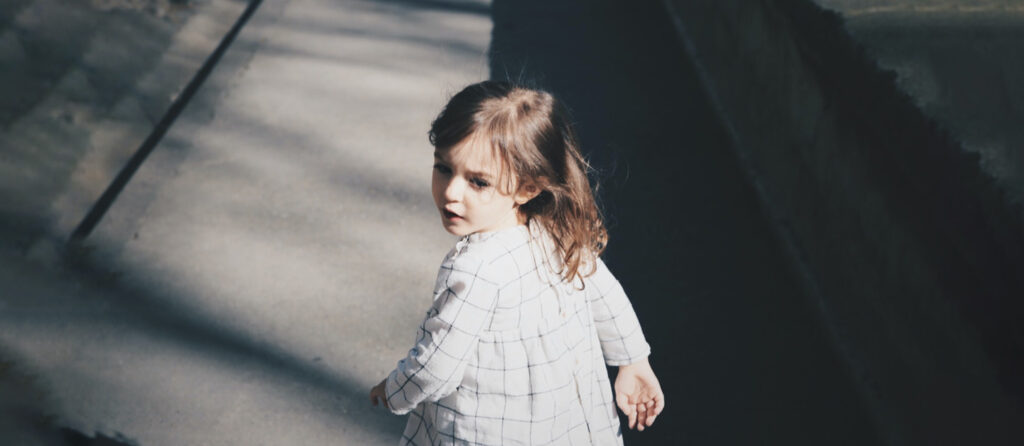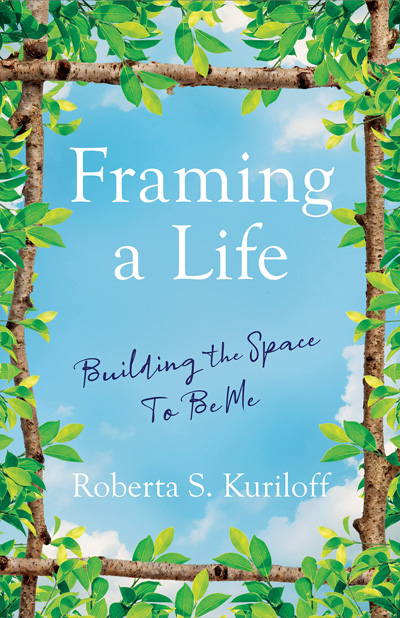
Estimated reading time: 7 minutes
Having suffered a series of traumatizing childhood events, the author strives to reframe her life by looking back
—
We cannot control all that happens to us, but we can choose how we react to those struggles. I’m inspired to share with others how we can look at life, the glass half-empty or half-full, and find peace in the efforts to become ourselves. I didn’t understand this when I was a young girl living in an orphanage, but there was something in me that pushed me to survive by believing in the positive, riding into the sunrise, not the sunset. That is my story.
[Below is an excerpt from Roberta’s memoir, Framing a Life: Building the Space to Be Me, about the construction and union of both an inner and outer life. Reproduced with permission from She Writes Press.]
In moments of meditative thought, I asked myself whether I defined home or if it was defined for me by childhood circumstances over which I had no control—circumstances that also changed the meaning of family. Did my need for a permanent home control my life choices? These questions challenged me in therapy—a healthy challenge I accepted, though one that didn’t allow me to evade memories of my move at age six to my aunt’s farm after my mother’s death and, a year later, another life-altering move to an orphanage. These are chilling recollections that continued to haunt me in my dreams.
After my mother’s death, my father took me and my brother to live with his sister, Nora, and her husband, Morris, on their farm in Flanders, New Jersey. He still worked in the city and came “home” to the farm on weekends. I missed him but loved the farm.
My aunt had a round, warm face, with a smile like the Mona Lisa, making it difficult to know whether she was pleased with me or not. She was much older than my mother and never mentioned her.
I was afraid to speak up, frightened I’d cry. Somehow I knew I had to be strong so as not to upset my father.
My uncle was tall and a little hunched over, a serious farmer with wrinkled skin from the sun and hard work. He taught me how to feed the chickens and milk the cows, and he called me “Rivka,” my Jewish name. I learned to corral the cows, especially when they wandered into the backyard. Walking them to the pasture, I tolerated more than one poke in my bottom from a bull. I fed the chickens and rode a neighbor’s horse. My nose adjusted to the pungent smells of horse and cow manure. After work, there was play on a swing my dad and uncle made, secured to a large tree overlooking the river that flowed through the grazing land.
For school, Aunt Nora washed my short hair and dressed me neatly, not in work pants. The first few days, she walked me the brief distance on the country road, holding my hand as my mother had. Her hand had a farmer’s coarseness, different from the softness of my mother’s hand when we walked the Brooklyn streets to kindergarten, me trying to match the pace of her feet, two steps for her one. I imagined I heard the sound of our laughter.
We passed other houses with farmland, horses, and cows. Sometimes I’d meet kids along the way, and we’d walk together. I smiled at friendly neighbors working outdoors. My brother was too young for school, so he stayed with my aunt. The schoolyard had swings. One day I stood on one, pushed myself higher and higher, and fell. I cried for my mother, but it was my aunt who came to school. I had a bloody bump on my scalp. It healed, leaving a small notch, a permanent reminder of my time on the farm.
Every morning I looked forward to seeing my aunt comb her long gray hair, which, when taken out of her bun, reached her waist. I watched her in the bathroom, brushing and combing, while next to her sat my uncle’s teeth in a bowl of water on the sink. Sometimes she let me comb her hair. I couldn’t braid it the way she did. I helped her cook, set the table, and learned how to stack the food and sort and pack the shelves in the large, cold pantry off the kitchen.
Like all children, I wanted to help—wanted to be of use—wanted to be loved enough to stay.
My aunt and uncle had three grown children. We spent time with them when they came home for the holidays, especially for the Jewish Passover, when we held the traditional seder, with prayers, wine, and a table full of food. My uncle narrated the Passover story, of the killing of Hebrews by the Pharaoh in Egypt and how Moses led them out of Egypt to find a permanent home in Israel. I listened to his words and stared at my father’s face across the table, wondering if the farm would be our new home, especially if he moved here permanently. I naïvely believed that God was watching over us now that my mother was gone.
My cousin Aaron was tall and lean in his Army garb. I had a crush on him, especially when he smiled. I usually babbled a lot with too many questions, but when he spoke to me, I melted into an awkward, shy version of myself, almost forgetting how to talk. His sisters, Effie and Diana, were elegant, even in their garden clothes. I wasn’t shy talking with them, their voices being gentle and smooth like my mother’s. I pictured myself looking like them when I grew up, without my chubby cheeks.
One day while my aunt and uncle were away, my father and Cousin Diana, whom we called “Nucie,” sat me down close to them in the living room. Their faces were somber, unsmiling.
Nucie gently held my hands, leaned close to my face, and in a quiet voice shared, “Roberta, Aunt Nora is not well; she’s ill with cancer, like your mother, and will soon die.”
My body shook. I screamed, “She can’t die! She doesn’t look sick. She’s not in bed like Mommy was.”
Beautiful, calm Nucie held me tighter. “I know how you feel, my sweet. She’s my mother, and like you, I don’t want to lose her.”
My father finally spoke. With blurry eyes, he tried to control his words. “Honey, you and Freddy won’t be able to live here anymore. Uncle Morris can’t care for you and the farm.”
I jumped up from the chair, letting go of Nucie’s hands, squealing, “I don’t want to leave! This is our home now. I’m in school and have friends. I can help Uncle Morris with the chores. I’m not afraid of the cows anymore. I milk them and collect the eggs. I can also help clean the house, and . . . and I can take care of Freddy. And, Daddy, when you come on the weekends, you can help too.”
I barely heard my father speak; my face turned ashen. I screamed inside, How can God be so mean to us—again!
“Roberta, Uncle Morris is old and not well. He has to sell the farm.”
I ran from the house, not knowing where to hide or what to do. As quickly as we had arrived, our idyllic year was over. For the second time, the word cancer destroyed my life.
A few months later, my father moved me and my brother to the Israel Orphan Asylum in Far Rockaway, New York.
I learned only too well at that tender age that a home could collapse as quickly as a child’s smile could morph into tears.
You may also enjoy reading You Can Run, But You Can’t Hide…from Your Intuition, That Is, by Heather Alice Shea.
